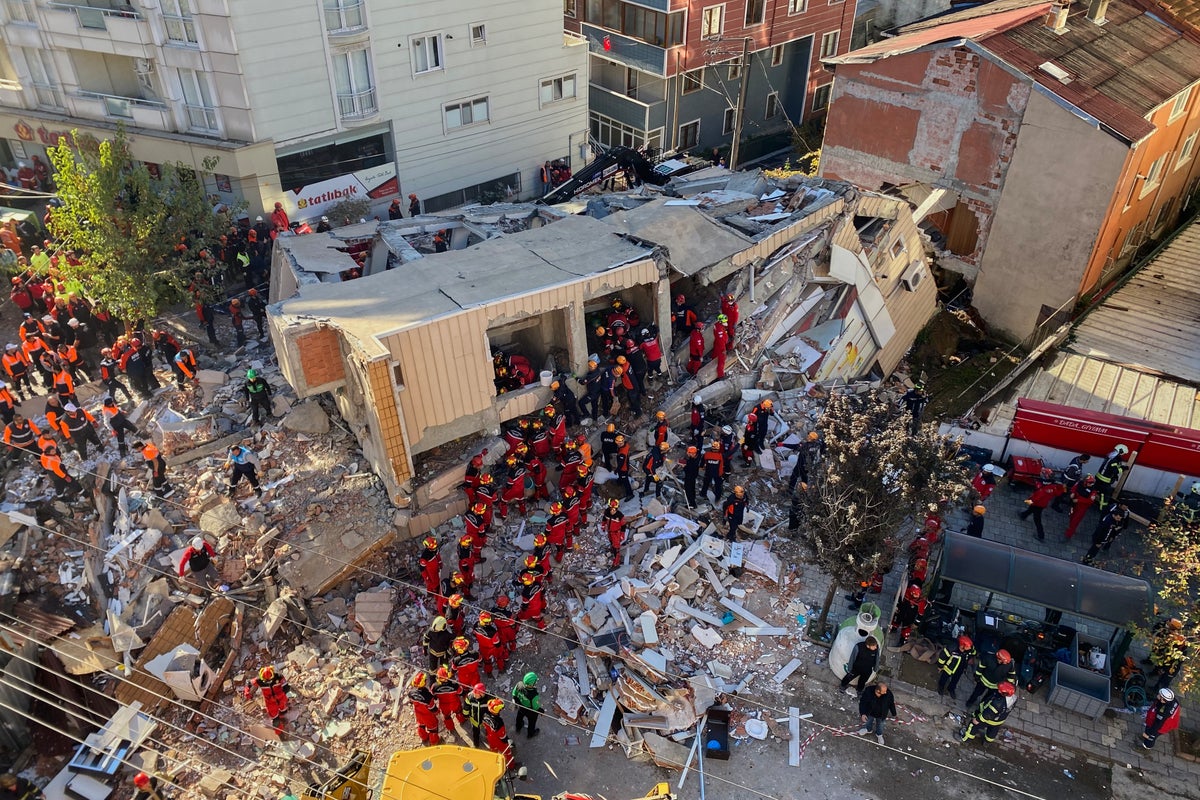
A seven-storey apartment building has collapsed in Gebze, north-western Turkey, killing two people and trapping three others under the rubble, officials and state media confirmed.
Gebze governor Ilhami Aktas stated all five victims belonged to one family. State-run TRT identified them as a couple and their three children, with 627 rescuers deployed.
Rescuers have recovered the body of 12-year-old Muhammed Emir Bilir, TRT reported, but the second fatality remains unidentified.
While state-run Anadolu Agency stated the cause of the collapse was currently unknown, mayor of Gebze Zinnur Buyukgoz, speaking to local media, suggested it might be related to nearby metro construction.
Gebze also lies along the north Anatolian fault line and was one of the main centres hit during 1999’s magnitude 7.6 earthquake, which killed an estimated 18,000 people in total.
Experts have long warned that Turkey’s failure to enforce modern construction codes poses significant risks in earthquake-prone areas.
The building collapse follows a powerful earthquake striking western Turkey on Monday, causing at least three buildings, already damaged by a previous tremor, to collapse, officials reported.
The 6.1 magnitude quake was centred in Sindirgi, Balikesir province, according to the Disaster and Emergency Management (AFAD) agency. No immediate casualties were confirmed.
The quake, which was followed by several aftershocks, was felt in Istanbul, and the nearby provinces of Bursa, Manisa and Izmir.
At least three unoccupied buildings and a two-story shop collapsed in Sindirgi, interior minister Ali Yerlikaya said.
The structures had already been damaged in a previous earthquake.
A total of 22 people were injured due to panic-related falls, which can occur because of the physical and psychological impact of earthquakes, according to Balikesir’s governor, Ismail Ustaoglu.
In January, the collapse of a four-storey building in Konya led to two deaths.
Shopkeepers who rented the ground floor are currently on trial to determine whether they dismantled supporting columns for more space, a common practice despite severe penalties.
They could face up to 22 years in prison if convicted.
